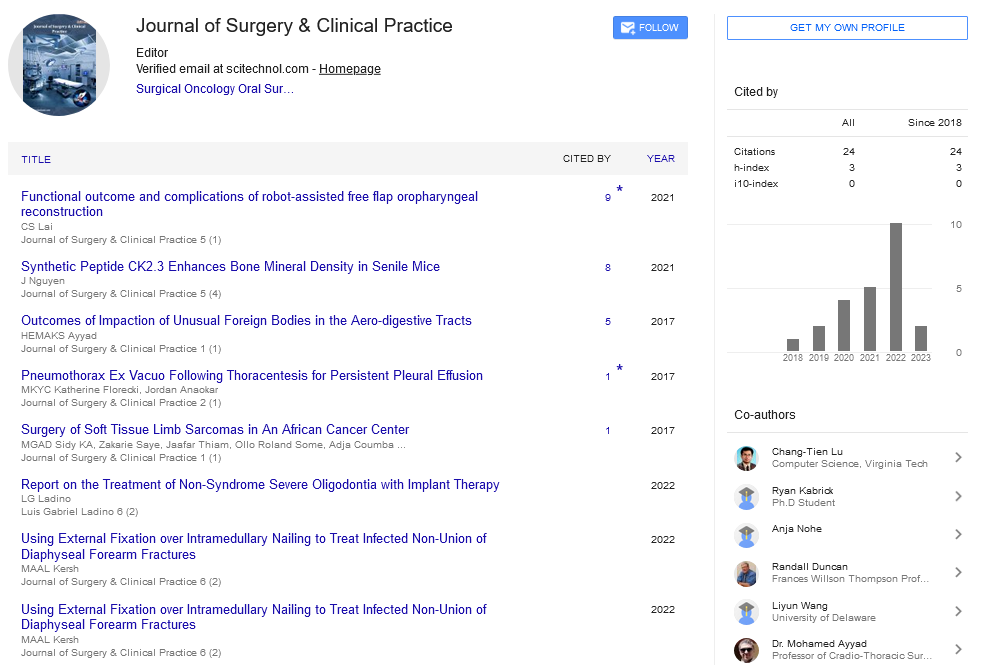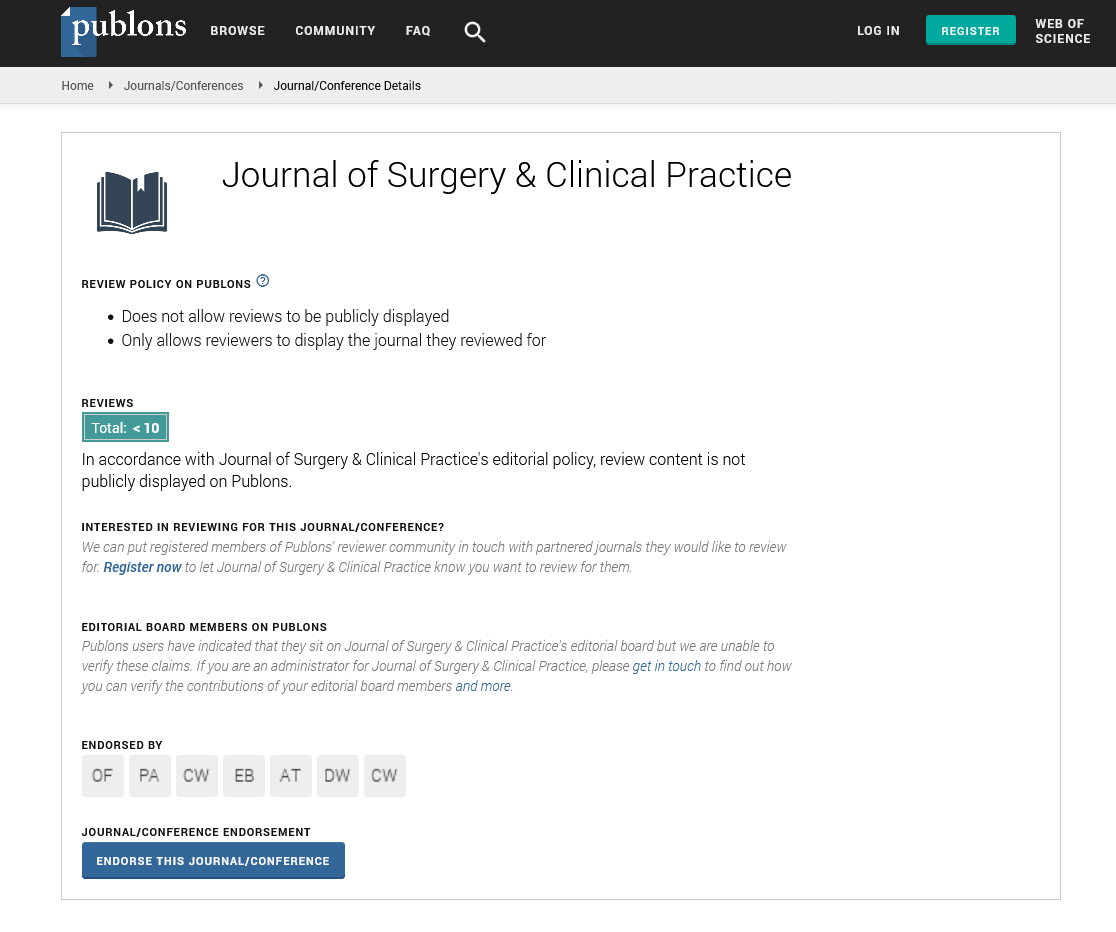Perspective, J Surg Clin Prac Vol: 7 Issue: 3
Patient Outcomes and Quality of Life after Open Abdominal Surgery
Melissa Hogg*
1Department of Surgery, NorthShore University, Evanston, USA
*Corresponding Author: Melissa Hogg,
Department of Surgery, NorthShore
University, Evanston, USA
E-mail: melissa@surge.edu
Received: 24 August, 2023, Manuscript No. JSCP-23-117732;
Editor assigned: 28 August, 2023, PreQC No. JSCP-23-117732 (PQ);
Reviewed: 12 September, 2023, QC No. JSCP-23-117732;
Revised: 19 September, 2023, Manuscript No. JSCP-23-117732 (R);
Published: 26 September, 2023 DOI: 10.35248/JSCP.23.7.1000392
Citation: Hogg M (2023) Patient Outcomes and Quality of Life after Open Abdominal Surgery. J Surg Clin Prac 7:3.
Description
Open abdominal surgery is an important medical intervention performed to various health issues, such as abdominal trauma, organ transplants, cancer treatments, and gastrointestinal disorders. While the primary goal of these surgeries is to treat the underlying condition, assessing patient outcomes and their quality of life post-surgery is equally crucial. The multifaceted aspects of patient outcomes and quality of life depend up on open abdominal surgery following physical, psychological, and social dimensions of recovery.
One of the key indicators of a successful open abdominal surgery is the patient's physical recovery. This includes the healing of surgical incisions, the restoration of organ functions, and the management of pain. Advances in surgical techniques and anesthesia have significantly reduced post-operative pain and accelerated recovery times. Moreover, patients now benefit from minimally invasive procedures, leading to smaller incisions, reduced scarring, and faster healing. Functional outcomes are also vital. Patients often face challenges in regaining their normal physical activities, such as walking, lifting, or bending. Rehabilitation programs also play a pivotal role in restoring mobility and strength. Physical therapy and guided exercises help patients regain muscle tone and flexibility, ensuring a smoother transition back to their daily routines.
Open abdominal surgery can have a profound impact on a patient's psychological and emotional well-being. Anxiety, depression, and fear of recurrence are common concerns. Patients might experience stress related to the surgery itself, the potential for complications, or changes in body image due to scarring. Psychological support, including counseling and therapy, is essential in addressing these concerns.
Moreover, the support of family and friends can significantly influence a patient's emotional recovery. Open communication and a strong social support system can alleviate feelings of isolation and provide emotional strength during the healing process. Patients often find solace in connecting with others who have undergone similar surgeries, sharing experiences, and coping strategies. Quality of life after open abdominal surgery encompasses various factors, such as the ability to engage in social activities, maintain relationships, and resume work or studies. Patients may face challenges in resuming their professional lives due to physical limitations or the need for ongoing medical appointments. Employers and educational institutions play an important role in supporting these individuals, providing necessary accommodations and understanding the unique needs of post-surgery recovery. Social reintegration is facilitated by patient education and awareness programs. Informing the community about the challenges faced by individuals post-surgery promotes empathy and inclusion. It encourages a supportive environment where patients can comfortably reintegrate into their social circles, reducing the stigma associated with surgical procedures.
Open abdominal surgery has undoubtedly an advanced medical treatment and saved countless lives. However, the journey does not end in the operating room. Patient outcomes and quality of life after surgery are critical aspects that demand attention and comprehensive support. Moreover, continued research and advancements in surgical techniques, pain management, and rehabilitation programs are essential. They contribute significantly to enhancing patient outcomes, minimizing complications, and improving the overall quality of life for individuals who undergo open abdominal surgery. Through collaborative efforts between medical professionals, patients, and communities, doctors can pave the way for a future where postsurgery experiences are not only medically successful but also emotionally fulfilling and socially enriching.
 Spanish
Spanish  Chinese
Chinese  Russian
Russian  German
German  French
French  Japanese
Japanese  Portuguese
Portuguese  Hindi
Hindi 
